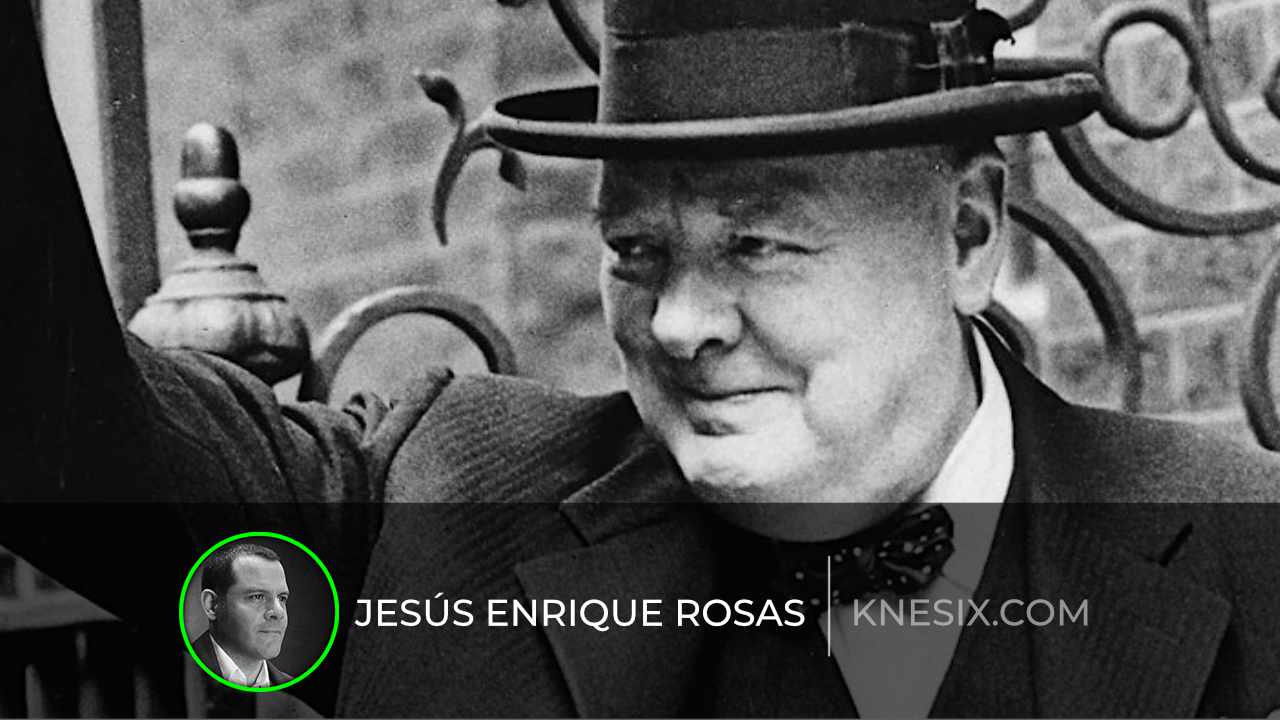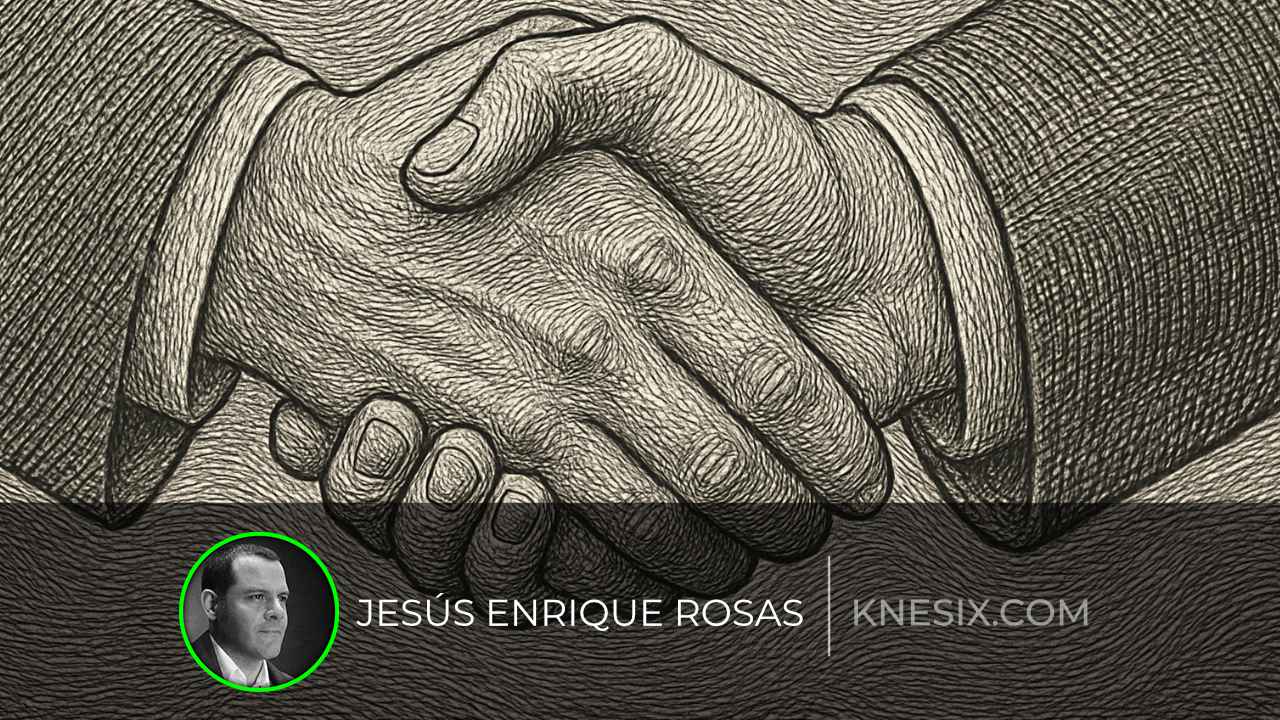Contradictions are the fastest way to expose charlatans, and a Churchill revisionist just became an easy example of how to spot them:
The other day, Tucker Carlson hosted who he called ‘one of America’s best and most honest popular historians’, Darryl Cooper, host of the Martyr Made podcast. I don’t pay much attention to Carlson’s interviews, or podcasts for that matter, but this one was all over my timeline for the fact that Cooper labelled Winston Churchill the ‘chief villain of WWII’.
Now, I’m not going to pretend I don’t like a shocking turn of events, or to think outside the box, or question everything. That’s where critical thinking comes from. But I’ve also had my fair share of encounters, both direct and indirect, with people whose claim to fame is just to be edgy and contrarian about a topic. And this reeked of it.
Anyway, I decided to give Cooper the benefit of the doubt but… well, let’s say that nope, the guy actually thinks and maintains that Churchill was the chief villain of World War II. Edgy! of course, he’s got a huge following. That’s expected. Many people are in dire need of something new these days and questioning any well-established narrative makes you feel good, at least for a couple hours.
Now, I’ve said this many times – you should be careful with idols. And even if I admire Winston Churchill, I know he was no angel, as any other human being. A flesh and blood, fallible man with both flaws and mistakes. But he knew the job that had to be done and he just went and did it.
But I’m not a historian. So maybe my opinion doesn’t have as much weight, and I’m sure there are facets to this story that I’m missing. But it turns out that Andrew Roberts, an actual historian and in fact one of Cooper’s heroes, invited him to a debate on the Winston Churchill topic.
To put it in perspective, it’s like Paul Ekman, legendary researcher of human emotions and facial expressions, challenged me to a debate. But at the same time I know that wouldn’t happen, because I don’t have that EDGY stances about body language, or at least that much different from Ekman’s.
But going back to Cooper, he decided to publish the exchange of the proposal. He posted on X:
“A British outlet asked me to debate literally Andrew Roberts, Baron of Belgravia, member of the House of Lords, and author of a whole shelf of books in my library (including the best one on Napoleon), about last week’s controversy. [crying laughing emoji]”
Then, a screenshot of his message to the British outlet:
“Hi, thanks, but are you crazy haha.. As much as it would be an honor to meet one of my favorite historians, even in a hostile setting and with a stack of misconceptions about what I think and who I am, I’ve read enough of Mr. Roberts’ books to know how that would go for me. Perhaps I’ll take you up on it after I’ve finished my upcoming podcast series on the topic and my thoughts are more fleshed out and organized – though I imagine, or at least hope, that all this will have died down to the point that there’d be little interest. Thanks again, and give my regards to Mr. Roberts”
A couple things here: It is obvious by the tone and references that yes, Roberts is Cooper’s hero. Why not tackle him in a ‘hostile environment’, if he was so sure of himself when talking to Tucker Carlson, and later doubling down on his stance with an ultra long X thread on Churchill?
Something to be noted is that Darryl Cooper’s business is his history podcast. In fact, thanks to the Churchill controversy his viewership has skyrocketed recently. That’s not surprising, given how social media works. But then again, he’s got the opportunity to debate a legendary historian on that same topic… that would bring a lot more traffic to his podcast, right?
…right?
That’s what makes his excuse of ‘perhaps I’ll do it after I’ve finished my upcoming podcast series on the topic’, nonsense. He got a golden opportunity to broadcast his edgy opinions on Tucker Carlson, but he’s not willing to put them to the test with Andrew Roberts?
Which makes the other statement even worse: “When my thoughts are more fleshed out and organized”. So he’s saying that his thoughts on Winston Churchill are not that fleshed out and organized for a debate, but he could still share them at their current state on Carlson’s interview?
Yeah, a blatant contradiction.
“I imagine, or at least hope, that all this will have died down to the point that there’d be little interest”. This was what settled things for me. His edgy remarks on Churchill gained him a ton of notoriety. Why in the world would he hope for that to die down? Hell, if my Youtube channel exploded around my thoughts and opinions about a topic you can bet that I would double down on it, making sure it lives for as long as possible!
But for some reason, Cooper is acting against his own interests. He’s not only saying that maybe he could do it ‘later’, he’s literally wishing for the topic to go away. Why?
Maybe because he knows he can’t defend his claims? Maybe he got too confident and wanted to sound… you know, contrarian on Carlson’s podcast and it backfired.
Also, if you think there is a ‘stack of misconceptions’ against you, the easiest way to clear them up is to dispel them publicly. If only you had a way to record videos and broadcast them to all your audience!
So, yes, I gave Darryl Cooper the benefit of the doubt, but he exposed himself with those texts. But how can you spot these kind of contradictions?
Here’s an easy process:
1) First, establish what is the person’s main interest. In this case, Cooper wants more viewers for his podcast. That’s, by all measures, a net positive for him. Being invited to Tucker Carlson allows him to reach a broader audience, so you can imagine that he’s going to bring his biggest guns to it.
2) Now you know what benefits the person, establish if other situations can amplify or reduce that benefit. In this case, a debate with a prominent historian will absolutely amplify that benefit. More controversy means more viewers, and converting some of your fans into acolytes. Noice!
3) See how they react to those situations, and if that reaction aligns with their interests. In this case, he declines with lukewarm explanations. Why would he act against his own interests?
4) When the contradiction arises, assume that there’s a conflict that you can’t see directly. In this case, the conflict that you can’t see is the ‘why’ he’s avoiding the debate. What could that be?
5) Elaborate a hypothesis about what is that conflict. In this case, and due to his own statement, my hypothesis is that Cooper thinks a debate with a proper historian will be actually detrimental for his own reputation and of course, viewership numbers.
Not to mention hoping for the topic to die down!
Now, if you want to develop these BS-detecting skills so you can apply them in real-time conversations, you must join my Body Language and Persuasion Masterclass.
My all-in-one program to give you ALL the tools I’ve developed so you become manipulation-proof and boost your personal influence: https://knesix.com/masterclass



